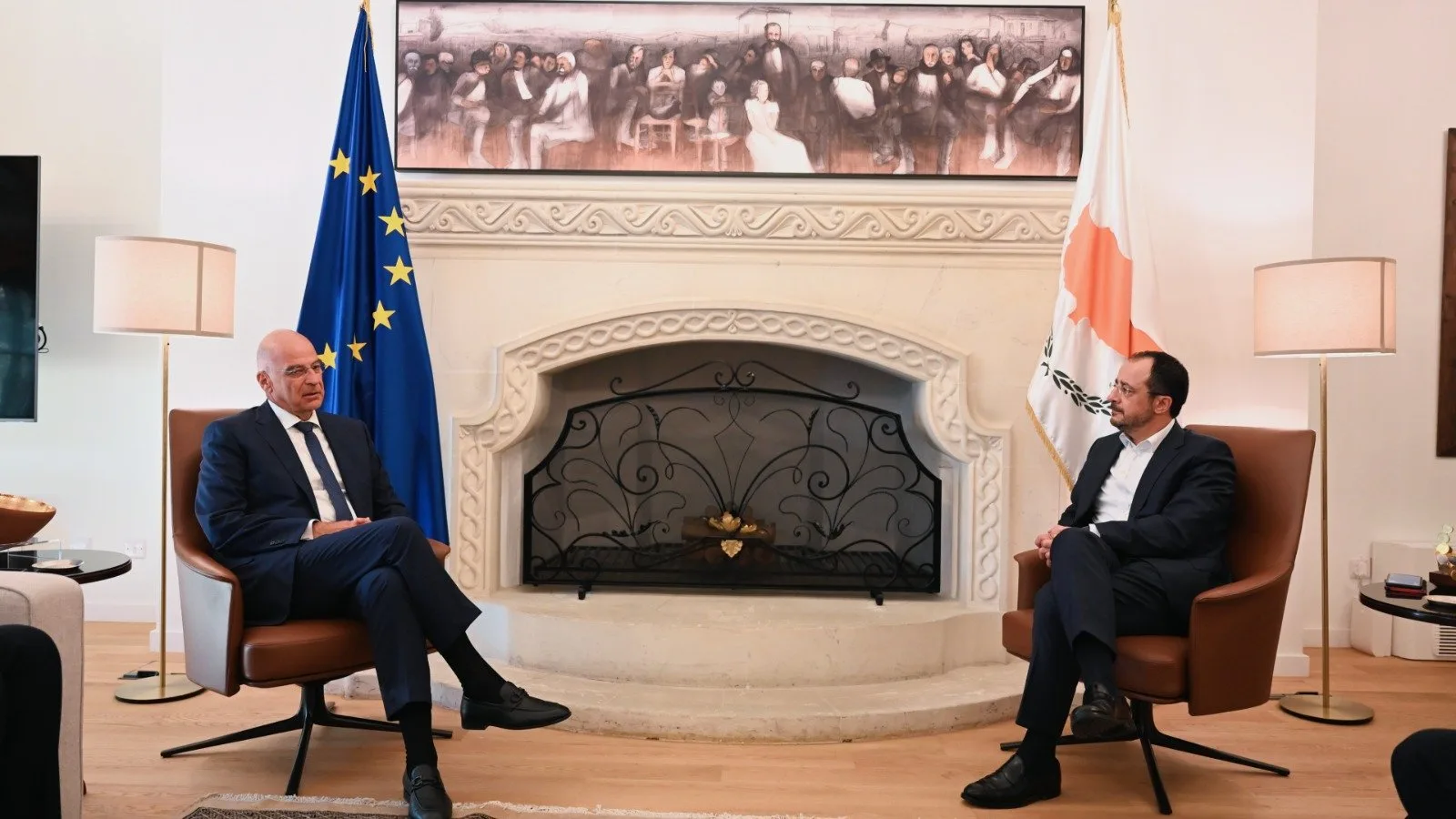Greek Defence Minister Nikos Dendias’ visit to Cyprus on Monday underscores a distinct separation between Greece’s modern government and the junta that sponsored a coup in Cyprus 50 years ago, said Cypriot President Nikos Christodoulides.
Welcoming Dendias at the Presidential Palace, Christodoulides expressed his pleasure in receiving him and noted the genuine friendship they had developed during their tenure as foreign ministers of their respective countries.
“I will dwell on another dimension, and I think your presence today, on the day of the treacherous coup, is very appropriate – a visit which also sends very specific messages about the clear separation from the Athens junta,” he remarked.
The Greek junta collapsed on July 24, 1974, nine days after the Cyprus coup and four days after Turkey invaded the island in response.
“Since then, Greek governments have always stood by Cypriot Hellenism in its effort, which has one sole goal: the liberation and reunification of this country,” Christodoulides said.
He added, “in this effort, the incumbent Greek government, as well as you personally, are by our side, not just through nice statements, which for a while was characteristic of relations between Greece and Cyprus, but through concrete and substantial actions.”
Dendias noted that the date of his visit, July 15, was symbolic.
“I fully understand the symbolism… The junta’s coup had tragic consequences. From then on, Hellenism has followed a different trajectory. Our relations are those which should be with cordiality, with love, and interest in solving the great national problem,” he said.
He expressed hope for an end to 50 years of occupation and division.
Earlier, Dendias met with his Cypriot counterpart Vasilis Palmas, emphasising that both Cyprus and Greece are “pillars of stability” and work towards de-escalating regional tensions. He highlighted the goal of ensuring freedom of navigation and protecting European economies.
Dendias also referenced the Amalthea plan, Cyprus’ humanitarian aid corridor to Gaza, as an example of their cooperation.
“The Amalthea plan demonstrates the frontline role the Republic of Cyprus can play in dealing with the humanitarian crisis in Gaza,” he said.
Additionally, he reiterated Greece’s longstanding support for a fair and sustainable solution to the Cyprus problem, based on UN Security Council resolutions and aligned with European Union laws.
Palmas affirmed the commitment of both countries to maintaining peace, security, stability, and cooperation in the Eastern Mediterranean, and to deepening their collaborative efforts.
Source: Cyprus Mail.
